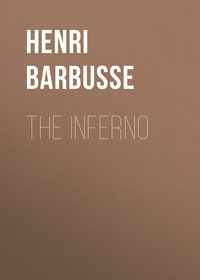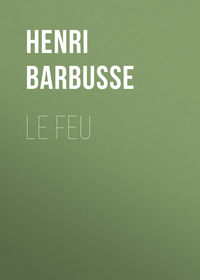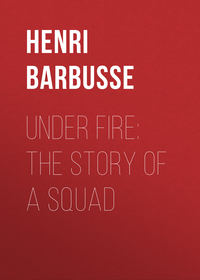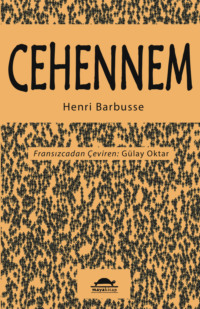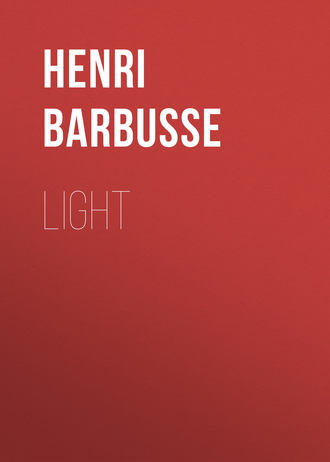 полная версия
полная версияLight
Now that I have made that effort, I can do no more, and my head lies there at the entrance to that world-great wound.
There is nothing now.
Yet there is that man. He was laid out like one dead. But suddenly, through his shut eyes, he smiled. He, no doubt, will come back here on earth, and something within me thanks him for his miracle.
And there was that one, too, whom I saw die. He raised his hand, which was drowning. Hidden in the depths of the others, it was only by that hand that he lived, and called, and saw. On one finger shone a wedding-ring, and it told me a sort of story. When his hand ceased to tremble, and became a dead plant with that golden flower, I felt the beginning of a farewell rise in me like a sob. But there are too many of them for one to mourn them all. How many of them are there on all this plain? How many, how many of them are there in all this moment? Our heart is only made for one heart at a time. It wears us out to look at all. One may say, "There are the others," but it is only a saying. "You shall not know; you shall not know."
Barrenness and cold have descended on all the body of the earth. Nothing moves any more, except the wind, that is charged with cold water, and the shells, that are surrounded by infinity, and the crows, and the thought that rolls immured in my head.
* * * * * *They are motionless at last, they who forever marched, they to whom space was so great! I see their poor hands, their poor legs, their poor backs, resting on the earth. They are tranquil at last. The shells which bespattered them are ravaging another world. They are in the peace eternal.
All is accomplished, all has terminated there. It is there, in that circle narrow as a well that the descent into the raging heart of hell was halted, the descent into slow tortures, into unrelenting fatigue, into the flashing tempest. We came here because they told us to come here. We have done what they told us to do. I think of the simplicity of our reply on the Day of Judgment.
The gunfire continues. Always, always, the shells come, and all those bullets that are miles in length. Hidden behind the horizons, living men unite with machines and fall furiously on space. They do not see their shots. They do not know what they are doing. "You shall not know; you shall not know."
But since the cannonade is returning, they will be fighting here again. All these battles spring from themselves and necessitate each other to infinity! One single battle is not enough, it is not complete, there is no satisfaction. Nothing is finished, nothing is ever finished. Ah, it is only men who die! No one understands the greatness of things, and I know well that I do not understand all the horror in which I am.
* * * * * *Here is evening, the time when the firing is lighted up. The horizons of the dark day, of the dark evening, and of the illuminated night revolve around my remains as round a pivot.
I am like those who are going to sleep, like the children. I am growing fainter and more soothed; I close my eyes; I dream of my home.
Yonder, no doubt, they are joining forces to make the evenings tolerable. Marie is there, and some other women, getting dinner ready; the house becomes a savor of cooking. I hear Marie speaking; standing at first, then seated at the table. I hear the sound of the table things which she moves on the cloth as she takes her place. Then, because some one is putting a light to the lamp, having lifted its chimney, Marie gets up to go and close the shutters. She opens the window. She leans forward and outspreads her arms; but for a moment she stays immersed in the naked night. She shivers, and I, too. Dawning in the darkness, she looks afar, as I am doing. Our eyes have met. It is true, for this night is hers as much as mine, the same night, and distance is not anything palpable or real; distance is nothing. It is true, this great close contact.
Where am I? Where is Marie? What is she, even? I do not know, I do not know. I do not know where the wound in my flesh is, and how can I know the wound in my heart?
* * * * * *The clouds are crowning themselves with sheaves of stars. It is an aviary of fire, a hell of silver and gold. Planetary cataclysms send immense walls of light falling around me. Phantasmal palaces of shrieking lightning, with arches of star-shells, appear and vanish amid forests of ghastly gleams.
While the bombardment is patching the sky with continents of flame, it is drawing still nearer. Volleys of flashes are plunging in here and there and devouring the other lights. The supernatural army is arriving! All the highways of space are crowded. Nearer still, a shell bursts with all its might and glows; and among us all whom chance defends goes frightfully in quest of flesh. Shells are following each other into that cavity there. Again I see, among the things of earth, a resurrected man, and he is dragging himself towards that hole! He is wrapped in white, and the under-side of his body, which rubs the ground, is black. Hooking the ground with his stiffened arms he crawls, long and flat as a boat. He still hears the cry "Forward!" He is finding his way to the hole; he does not know, and he is trailing exactly toward its monstrous ambush. The shell will succeed! At any second now the frenzied fangs of space will strike his side and go in as into a fruit. I have not the strength to shout to him to fly elsewhere with all his slowness; I can only open my mouth and become a sort of prayer in face of the man's divinity. And yet, he is the survivor; and along with the sleeper, to whom a dream was whispering just now, he is the only one left to me.
A hiss—the final blow reaches him; and in a flash I see the piebald maggot crushing under the weight of the sibilance and turning wild eyes towards me.
No! It is not he! A blow of light—of all light—fills my eyes. I am lifted up, I am brandished by an unknown blade in the middle of a globe of extraordinary light. The shell–I! And I am falling, I fall continually, fantastically. I fall out of this world; and in that fractured flash I saw myself again—I thought of my bowels and my heart hurled to the winds—and I heard voices saying again and again—far, far away—"Simon Paulin died at the age of thirty-six."
CHAPTER XVI
DE PROFUNDIS CLAMAVI
I am dead. I fall, I roll like a broken bird into bewilderments of light, into canyons of darkness. Vertigo presses on my entrails, strangles me, plunges into me. I drop sheer into the void, and my gaze falls faster than I.
Through the wanton breath of the depths that assail me I see, far below, the seashore dawning. The ghostly strand that I glimpse while I cling to my own body is bare, endless, rain-drowned, and supernaturally mournful. Through the long, heavy and concentric mists that the clouds make, my eyes go searching. On the shore I see a being who wanders alone, veiled to the feet. It is a woman. Ah, I am one with that woman! She is weeping. Her tears are dropping on the sand where the waves are breaking! While I am reeling to infinity, I hold out my two heavy arms to her. She fades away as I look.
For a long time there is nothing, nothing but invisible time, and the immense futility of rain on the sea.
* * * * * *What are these flashes of light? There are gleams of flame in my eyes; a surfeit of light is cast over me. I can no longer cling to anything—fire and water!
In the beginning, there is battle between fire and water—the world revolving headlong in the hooked claws of its flames, and the expanses of water which it drives back in clouds. At last the water obscures the whirling spirals of the furnace and takes their place. Under the roof of dense darkness, timbered with flashes, there are triumphant downpours which last a hundred thousand years. Through centuries of centuries, fire and water face each other; the fire, upright, buoyant and leaping; the water flat, creeping, gliding, widening its lines and its surface. When they touch, is it the water which hisses and roars, or is it the fire? And one sees the reigning calm of a radiant plain, a plain of incalculable greatness. The round meteor congeals into shapes, and continental islands are sculptured by the water's boundless hand.
I am no longer alone and abandoned on the former battlefield of the elements. Near this rock, something like another is taking shape; it stands straight as a flame, and moves. This sketch-model thinks. It reflects the wide expanse, the past and the future; and at night, on its hill, it is the pedestal of the stars. The animal kingdom dawns in that upright thing, the poor upright thing with a face and a cry, which hides an internal world and in which a heart obscurely beats. A lone being, a heart! But the heart, in the embryo of the first men, beats only for fear. He whose face has appeared above the earth, and who carries his soul in chaos, discerns afar shapes like his own, he sees the other—the terrifying outline which spies and roams and turns again, with the snare of his head. Man pursues man to kill him and woman to wound her. He bites that he may eat, he strikes down that he may clasp,—furtively, in gloomy hollows and hiding-places or in the depths of night's bedchamber, dark love is writhing,—he lives solely that he may protect, in some disputed cave, his eyes, his breast, his belly, and the caressing brands of his hearth.
* * * * * *There is a great calm in my environs.
From place to place, men have gathered together. There are companies and droves of men, with watchmen, in the vapors of dawn; and in the middle one makes out the children and the women, crowding together like fallow deer. To eastward I see, in the silence of a great fresco, the diverging beams of morning gleaming, through the intervening and somber statues of two hunters, whose long hair is tangled like briars, and who hold each other's hand, upright on the mountain.
Men have gone towards each other because of that ray of light which each of them contains; and light resembles light. It reveals that the isolated man, too free in the open expanses, is doomed to adversity as if he were a captive, in spite of appearances; and that men must come together that they may be stronger, that they may be more peaceful, and even that they may be able to live.
For men are made to live their life in its depth, and also in all its length. Stronger than the elements and keener than all terrors are the hunger to last long, the passion to possess one's days to the very end and to make the best of them. It is not only a right; it is a virtue.
Contact dissolves fear and dwindles danger. The wild beast attacks the solitary man, but shrinks from the unison of men together. Around the home-fire, that lowly fawning deity, it means the multiplication of the warmth and even of the poor riches of its halo. Among the ambushes of broad daylight, it means the better distribution of the different forms of labor; among the ambushes of night, it stands for that of tender and identical sleep. All lone, lost words blend in an anthem whose murmur rises in the valley from the busy animation of morning and evening.
The law which regulates the common good is called the moral law. Nowhere nor ever has morality any other purpose than that; and if only one man lived on earth, morality would not exist. It prunes the cluster of the individual's appetites according to the desires of the others. It emanates from all and from each at the same time, at one and the same time from justice and from personal interest. It is inflexible and natural, as much so as the law which, before our eyes, fits the lights and shadows so perfectly together. It is so simple that it speaks to each one and tells him what it is. The moral law has not proceeded from any ideal; it is the ideal which has wholly proceeded from the moral law.
* * * * * *The primeval cataclysm has begun again upon the earth. My vision—beautiful as a fair dream which shows men's composed reliance on each other in the sunrise—collapses in mad nightmare.
But this flashing devastation is not incoherent, as at the time of the conflict of the first elements and the groping of dead things. For its crevasses and flowing fires show a symmetry which is not Nature's; it reveals discipline let loose, and the frenzy of wisdom. It is made up of thought, of will, of suffering. Multitudes of scattered men, full of an infinity of blood, confront each other like floods. A vision comes and pounces on me, shaking the soil on which I am doubtless laid—the marching flood. It approaches the ditch from all sides and is poured into it. The fire hisses and roars in that army as in water; it is extinguished in human fountains!
* * * * * *It seems to me that I am struggling against what I see, while lying and clinging somewhere; and once I even heard supernatural admonitions in my ear, as if I were somewhere else.
I am looking for men—for the rescue of speech, of a word. How many of them I heard, once upon a time! I want one only, now. I am in the regions where men are earthed up,—a crushed plain under a dizzy sky, which goes by peopled with other stars than those of heaven, and tense with other clouds, and continually lighted from flash to flash by a daylight which is not day.
Nearer, one makes out the human shape of great drifts and hilly fields, many-colored and vaguely floral—the corpse of a section or of a company. Nearer still, I perceive at my feet the ugliness of skulls. Yes, I have seen them—wounds as big as men! In this new cess-pool, which fire dyes red by night and the multitude dyes red by day, crows are staggering, drunk.
Yonder, that is the listening-post, keeping watch over the cycles of time. Five or six captive sentinels are buried there in that cistern's dark, their faces grimacing through the vent-hole, their skull-caps barred with red as with gleams from hell, their mien desperate and ravenous.
When I ask them why they are fighting, they say:—
"To save my country."
I am wandering on the other side of the immense fields where the yellow puddles are strewn with black ones (for blood soils even mud), and with thickets of steel, and with trees which are no more than the shadows of themselves; I hear the skeleton of my jaws shiver and chatter. In the middle of the flayed and yawning cemetery of living and dead, moonlike in the night, there is a wide extent of leveled ruins. It was not a village that once was there, it was a hillside whose pale bones are like those of a village. The other people—mine—have scooped fragile holes, and traced disastrous paths with their hands and with their feet. Their faces are strained forward, their eyes search, they sniff the wind.
"Why are you fighting?"
"To save my country."
The two answers fall as alike in the distance as two notes of a passing-bell, as alike as the voice of the guns.
* * * * * *And I—I am seeking; it is a fever, a longing, a madness. I struggle, I would fain tear myself from the soil and take wing to the truth. I am seeking the difference between those people who are killing themselves, and I can only find their resemblance. I cannot escape from this resemblance of men. It terrifies me, and I try to cry out, and there come from me strange and chaotic sounds which echo into the unknown, which I almost hear!
They do not wear similar clothes on the targets of their bodies, and they speak different tongues; but from the bottom of that which is human within them, identically the same simplicities come forth. They have the same sorrows and the same angers, around the same causes. They are alike as their wounds are alike and will be alike. Their sayings are as similar as the cries that pain wrings from them, as alike as the awful silence that soon will breathe from their murdered lips. They only fight because they are face to face. Against each other, they are pursuing a common end. Dimly, they kill themselves because they are alike.
And by day and by night, these two halves of war continue to lie in wait for each other afar, to dig their graves at their feet, and I am helpless. They are separated by frontiers of gulfs, which bristle with weapons and explosive snares, impassable to life. They are separated by all that can separate, by dead men and still by dead men, and ever thrown back, each into its gasping islands, by black rivers and consecrated fires, by heroism and hatred.
And misery is endlessly begotten of the miserable.
There is no real reason for it all; there is no reason. I do not wish it. I groan, I fall back.
Then the question, worn, but stubborn and violent as a solid thing, seizes upon me again. Why? Why? I am like the weeping wind. I seek, I defend myself, amid the infinite despair of my mind and heart. I listen. I remember all.
* * * * * *A booming sound vibrates and increases, like the fitful wing-beats of some dim, tumultuous archangel, above the heads of the masses that move in countless dungeons, or wheel round to furnish the front of the lines with new flesh:—
"Forward! It has to be! You shall not know!"
I remember. I have seen much of it, and I see it clearly. These multitudes who are set in motion and let loose,—their brains and their souls and their wills are not in them, but outside them!
* * * * * *Other people, far away, think and wish for them. Other people wield their hands and push them and pull them, others, who hold all their controlling threads; in the distance, the people in the center of the infernal orbits, in the capital cities, in the palaces. There is a higher law; up above men there is a machine which is stronger than men. The multitude is at the same time power and impotence—and I remember, and I know well that I have seen it with my own eyes. War is the multitude—and it is not! Why did I not know it since I have seen it?
Soldier of the wide world, you, the man taken haphazard from among men, remember—there was not a moment when you were yourself. Never did you cease to be bowed under the harsh and answerless command, "It has to be, it has to be." In times of peace encircled in the law of incessant labor, in the mechanical mill or the commercial mill, slave of the tool, of the pen, of your talent, or of some other thing, you were tracked without respite from morning to evening by the daily task which allowed you only just to overcome life, and to rest only in dreams.
When the war comes that you never wanted—whatever your country and your name—the terrible fate which grips you is sharply unmasked, offensive and complicated. The wind of condemnation has arisen.
They requisition your body. They lay hold on you with measures of menace which are like legal arrest, from which nothing that is poor and needy can escape. They imprison you in barracks. They strip you naked as a worm, and dress you again in a uniform which obliterates you; they mark your neck with a number. The uniform even enters into your flesh, for you are shaped and cut out by the stamping-machine of exercises. Brightly clad strangers spring up about you, and encircle you. You recognize them—they are not strangers. It is a carnival, then,—but a fierce and final carnival, for these are your new masters, they the absolute, proclaiming on their fists and heads their gilded authority. Such of them as are near to you are themselves only the servants of others, who wear a greater power painted on their clothes. It is a life of misery, humiliation and diminution into which you fall from day to day, badly fed and badly treated, assailed throughout your body, spurred on by your warders' orders. At every moment you are thrown violently back into your littleness, you are punished for the least action which comes out of it, or slain by the order of your masters. It is forbidden you to speak when you would unite yourself with the brother who is touching you. The silence of steel reigns around you. Your thoughts must be only profound endurance. Discipline is indispensable for the multitude to be melted into a single army; and in spite of the vague kinship which is sometimes set up between you and your nearest chief, the machine-like order paralyzes you first, so that your body may be the better made to move in accordance with the rhythm of the rank and the regiment—into which, nullifying all that is yourself, you pass already as a sort of dead man.
"They gather us together but they separate us!" cries a voice from the past.
If there are some who escape through the meshes, it means that such "slackers" are also influential. They are uncommon, in spite of appearances, as the influential are. You, the isolated man, the ordinary man, the lowly thousand-millionth of humanity, you evade nothing, and you march right to the end of all that happens, or to the end of yourself.
You will be crushed. Either you will go into the charnel house, destroyed by those who are similar to you, since war is only made by you, or you will return to your point in the world, diminished or diseased, retaining only existence without health or joy, a home-exile after absences too long, impoverished forever by the time you have squandered. Even if selected by the miracle of chance, if unscathed in the hour of victory, you also, you will be vanquished. When you return into the insatiable machine of the work-hours, among your own people—whose misery the profiteers have meanwhile sucked dry with their passion for gain—the task will be harder than before, because of the war that must be paid for, with all its incalculable consequences. You who peopled the peace-time prisons of your towns and barns, begone to people the immobility of the battlefields—and if you survive, pay up! Pay for a glory which is not yours, or for ruins that others have made with your hands.
Suddenly, in front of me and a few paces from my couch—as if I were in a bed, in a bedroom, and had all at once woke up—an uncouth shape rises awry. Even in the darkness I see that it is mangled. I see about its face something abnormal which dimly shines; and I can see, too, by his staggering steps, sunk in the black soil, that his shoes are empty. He cannot speak, but he brings forward the thin arm from which rags hang down and drip; and his imperfect hand, as torturing to the mind as discordant chords, points to the place of his heart. I see that heart, buried in the darkness of the flesh, in the black blood of the living—for only shed blood is red. I see him profoundly, with my heart. If he said anything he would say the words that I still hear falling, drop by drop, as I heard them yonder—"Nothing can be done, nothing." I try to move, to rid myself of him. But I cannot, I am pinioned in a sort of nightmare; and if he had not himself faded away I should have stayed there forever, dazzled in presence of his darkness. This man said nothing. He appeared like the dead thing he is. He has departed. Perhaps he has ceased to be, perhaps he has entered into death, which is not more mysterious to him than life, which he is leaving—and I have fallen back into myself.
* * * * * *He has returned, to show his face to me. Ah, now there is a bandage round his head, and so I recognize him by his crown of filth! I begin again that moment when I clasped him against me to crush him; when I propped him against the shell, when my arms felt his bones cracking round his heart! It was he!—It was I! He says nothing, from the eternal abysses in which he remains my brother in silence and ignorance. The remorseful cry which tears my throat outstrips me, and would find some one else.
Who?
That destiny which killed him by means of me—has it no human faces?
"Kings!" said Termite.
"The big people!" said the man whom they had snared, the close-cropped German prisoner, the man with the convict's hexagonal face, he who was greenish from top to toe.
But these kings and majesties and superhuman men who are illuminated by fantastic names and never make mistakes—were they not done away with long since? One does not know.
One does not see those who rule. One only sees what they wish, and what they do with the others.
Why have They always command? One does not know. The multitudes have not given themselves to Them. They have taken them and They keep them. Their power is supernatural. It is, because it was. This is its explanation and formula and breath—"It has to be."
As they have laid hold of arms, so they lay hold of heads, and make a creed.
"They tell you," cried he, whom none of the lowly soldiers would deign to listen to; "they say to you, 'This is what you must have in your minds and hearts.'"


